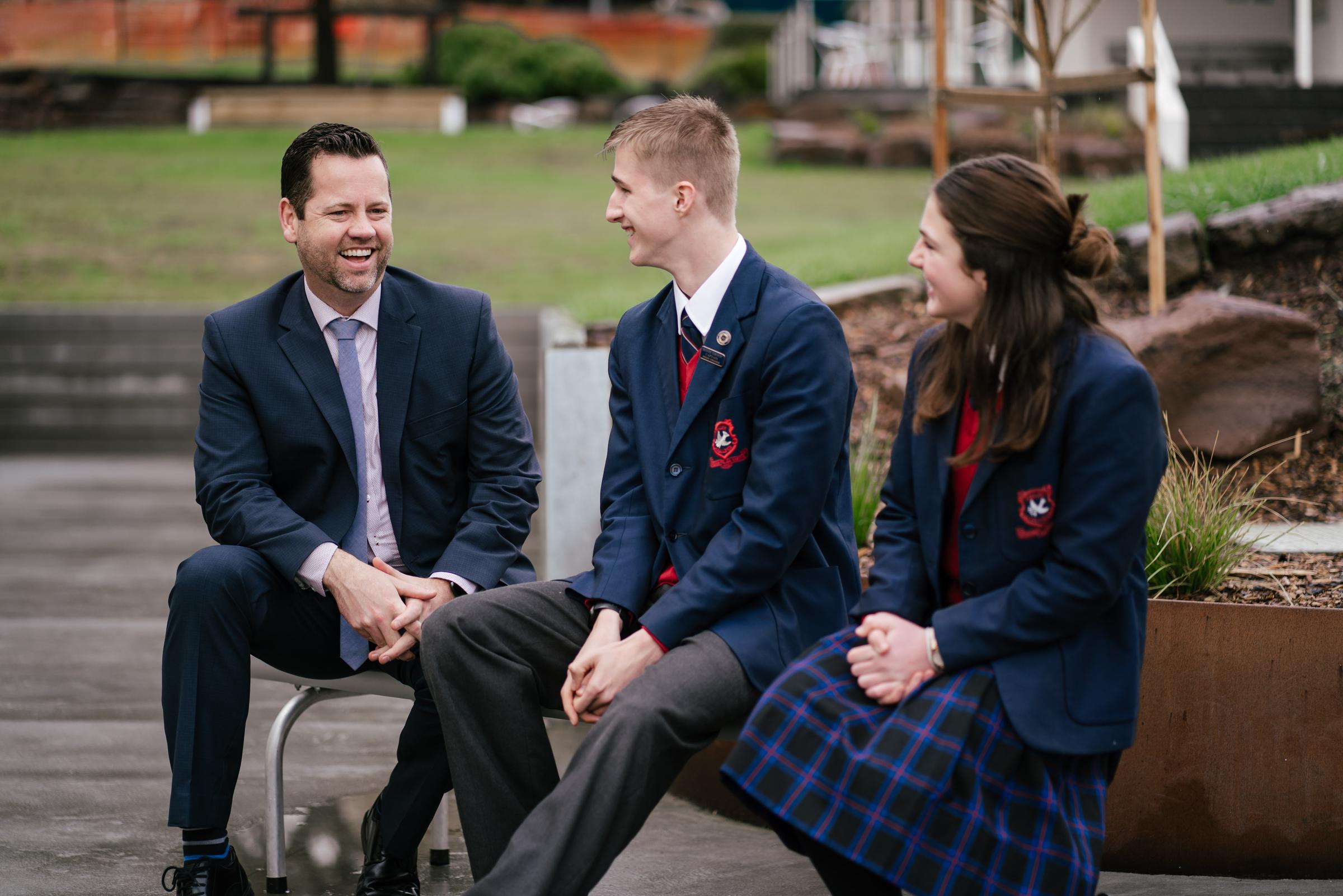Chaplain’s Corner

Social Media Ban for Under-16s
- What to expect
- The good news
- Tips for parents
A personal anecdote
Proverbs 22:6 Start children off on the way they should go, and even when they are old they will not turn from it.
As you will have heard by now, from Wednesday 10 December, major platforms including Instagram, TikTok, Facebook, Snapchat and YouTube will block anyone under 16 from creating or keeping accounts, as part of new legislation designed to protect children online. The government is also considering other platforms to be included, such as Roblox and live video streaming platform, Kick.
Experts are encouraging parents to prepare their teens for what may feel like a major change—but also a potential turning point for youth mental health. For me as I consider my experience and research, I can assure you that the benefits far outweigh the perceived disadvantages.
What to Expect:
- Teens may experience “withdrawal symptoms” such as irritability, restlessness, low mood and anxiety in the first week or so.
- This reaction is similar to other behavioural addictions being interrupted—as social media apps are designed to trigger dopamine-driven reward cycles.
- A “grieving process” may occur as young people adjust to losing online spaces that have shaped their social identity.
- The timing, just before the summer holidays and Christmas, could make the adjustment more challenging due to less structure and peer contact.
Your teen will almost certainly try to negotiate and persuade you that the rules do not or should not apply to them and that you should consider helping them with a work around! Stay strong.
The Good News:
- Studies show that after two to three weeks offline, many already experience improved mental health, reduced anxiety, less loneliness and less of a “fear of missing out” (FOMO).
- Families are expected to see stronger face-to-face connections and more time for shared activities.
Experts believe this may spark one of the most positive mental health shifts in years.
Tips for Parents:
- Prepare your teen early—talk openly about what’s coming and why.
- Encourage offline friendships and outdoor activities.
- Remind them that everyone their age will be offline, reducing the sense of missing out.
- Use the time to reconnect as a family—meals, games, sports or creative projects. A short tabletop game directly after dinner around the table, even once a week has so many rich benefits!
Seek professional help if your child struggles significantly with the change.
As one expert said: “The sun will still rise on December 10—the kids are going to be okay.”
A Personal Anecdote
When my children were a little younger (my daughter graduates Year 12 this year), I decided to experiment with social media and phone use within my own family. I had seen, in my role as Chaplain, the pitfalls and traps phone use and social media use had caused for so many Year 7 to 9’s!
My background is originally, in IT. I earned my Bachelor of Computing right around the time Facebook was introduced to Australia. Back then, Facebook was more simplistic in its design, but its ability to spread and captivate was just as addictive as it is today. I was an early adopter, one of the first in Australia to have Facebook and even earlier, one of the first in my Year 12 cohort to own a mobile phone: a Nokia 3310! It's only “social” feature however, was showing your friends in person, your high score on Snake!
Then came the iPhone, and everything changed. Suddenly, photos, videos, emails, apps, and social media were accessible 24/7. As later in life digital natives, many of us grew up without the same pressures teens face today, and we developed different coping mechanisms. But let’s be honest, the temptation to be glued to our phones affects us too. Now imagine being 10 or 14 years old, with the maturity that comes with those ages, trying to resist that pull. It’s nearly impossible without help. Especially when the average teenager receives 230–240 notifications every single day (25% during school hours and about 5% at night when they should be sleeping). Compare that to adults, who average 46–63 notifications per day. It’s no wonder teens feel overwhelmed, and that’s before we even consider peer pressure, online bullying, negative stereotypes, and predatory behaviours.
That’s why my wife and I set boundaries with our own kids. On the advice of others, we delayed smartphones until their birthday in Year 8—no smartphone in Year 7. Instead, they had a “dumb phone,” a Nokia, for Years 6 and 7. No social media, no group messaging until Year 10. With each new step, we introduced a family contract: sign the agreement, and you earn the new device along with our financial support for phone bills and internet access.
The contract included rules like:
- No devices in bedrooms
- Parents can check phones, emails, and messages anytime
We get to know all the passwords
It wasn’t about spying—it was about building trust. We promised not to hover 24/7, but acknowledged that at their age, they would need guidance.
Were there moments when our kids felt left out? Absolutely. At times, we were “the worst parents in the world.” But that’s okay. Our children need active, involved parents more than endless online friends. And then came the moment that made it all worthwhile… at the end of Year 9, my daughter said, “Thank you, Dad. It was the best thing you could have done for me. You really did help keep me out of so much drama.” Relief. Satisfaction. Justification.
Some will say this new social media ban is government overreach. Maybe. But I see it as an opportunity—an invitation for parents to talk with their kids, support them through the transition, and help them see that this is ultimately good for their mental health, relationships, and real-life connections.
The sun will set and rise again—with or without social media. And maybe, without it, they’ll actually even notice the sunrise!
Start children off on the way they should go, and even when they are old they will not turn from it. Proverbs 22:6
God bless,
Pastor Matt Daly
College Chaplain
PS. If you would like a copy of a sample contract you could establish with your child, email me at mdaly@oxley.vic.edu.au . The beginning of Year 6 is the perfect time to introduce one.
